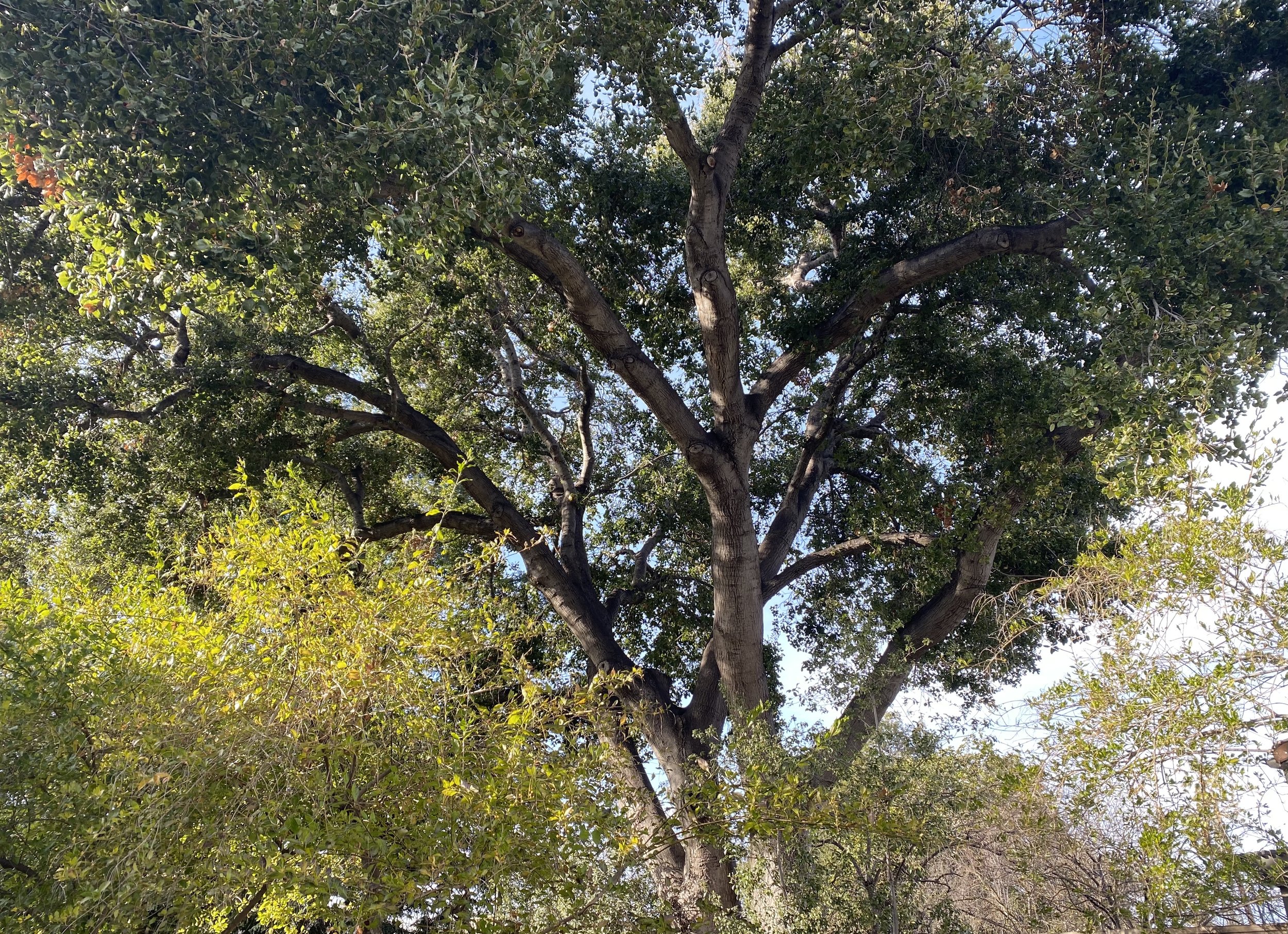Acorns to Oak Trees/Part 2
“The true nature of anything is the highest it can become.”
— Aristotle
The oak tree I see outside my window as I write this post.
When you think about it, it's miraculous how a small seed – like an acorn – contains the full genetic instruction set to become something big, beautiful and life nourishing — like an oak tree. It’s an example of the gift all life forms possess: An encoded ability to reach, under the right conditions, their full potential.
It’s worth reflecting on how this “encoded ability” applies to humans. In our physical development — the trajectory from conception to adulthood — it appears obvious. But what about our psycho-social development? Once we’ve reached adulthood physically, have we also reached the peak of our mental, emotional and spiritual capacities, or is more potential available to us? And if there is, what is the nature of that potential, and what conditions help facilitate it?
Those are huge questions and it can be difficult to know where to even begin to answer them. Fortunately, a series of findings in neuroscience offer a helpful starting point.
The first of these findings has to do with how our personal experiences help shape the way our brain is structured:
“Everything that you experience leaves its mark on your brain. When you learn something new, the neurons involved in the learning episode grow new projections and form new connections.” 1
The connections not only shape how we see and interact with the world, they also help determine our brain’s overall degree of neural integration: The extent and strength of the communication pathways that connect the various regions of our brain.
The second finding is that the degree of brain integration is a reliable indicator of our overall physical, emotional and psychological wellbeing, according to research from the Human Connectome Project, funded by the National Institute of Health. In the words of Dr. Dan Siegel, UCLA Clinical Professor of Psychiatry:
“The Human Connectome project has shown that the best predictor of a wide range of measures of well-being is how interconnected the connectome is – that is, how integrated the brain is.”2
The best predictor of wellbeing is how integrated our brain is.
While impaired neural integration is associated with a host of disorders characterized by rigidity, chaos and emotional reactivity, increased neural integration is associated with a host of positive attributes including greater resiliency, flexibility and adaptability, all expressed outwardly, says Siegel, as "harmony, kindness and compassion.”3
If you believe, like I do, that the world sorely needs more harmony, kindness and compassion — on every side of every divide, for the sake of ourselves, our children and our planet — then you’ll be especially interested in the third and last finding I want to share: We all have an “encoded ability” to increase our own neural integration.
In short, we are wired to rewire — an ability made possible by what science calls neuroplasticity: The capacity of our brain "to modify, change, and adapt both structure and function throughout life and in response to experience.”4
In other words, no matter who we are, we can actually create for ourselves experiences and conditions that facilitate our own evolution in the direction most needed for our individual and collective wellbeing.
What’s more, nothing is preventing us from exercising this ability. No one else needs to go first. No laws need to be created or repealed. No special permissions are required. All that’s needed is our individual, autonomous decision to take responsibility for our own further evolution — to move in the direction of “the highest we can become.”
So what are the experiences and conditions that facilitate greater neural integration, and what impact might it have on our collective future? That’s what we’ll explore in my next post.
As always, thanks for reading.
Kern
1 https://elifesciences.org/digests/52743/how-experience-shapes-the-brain
2 https://wilddivine.com/blogs/news/how-integrating-your-brain-creates-a-more-resilient-life
3 https://drdansiegel.com/
4 https://www.frontiersin.org/articles/10.3389/fpsyg.2017.01657/full


